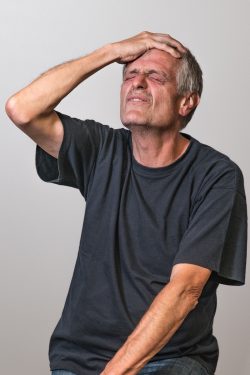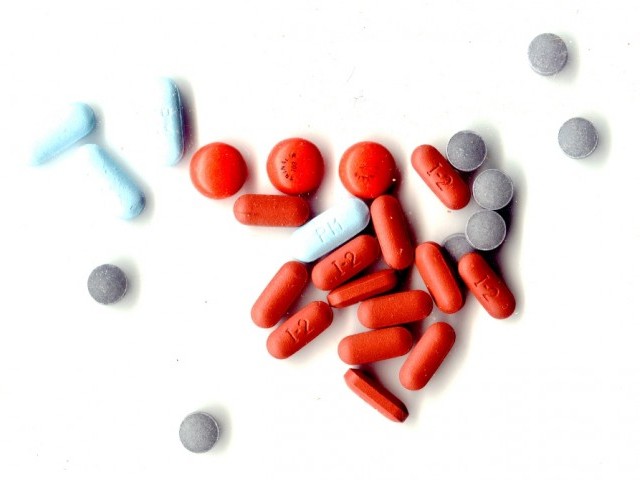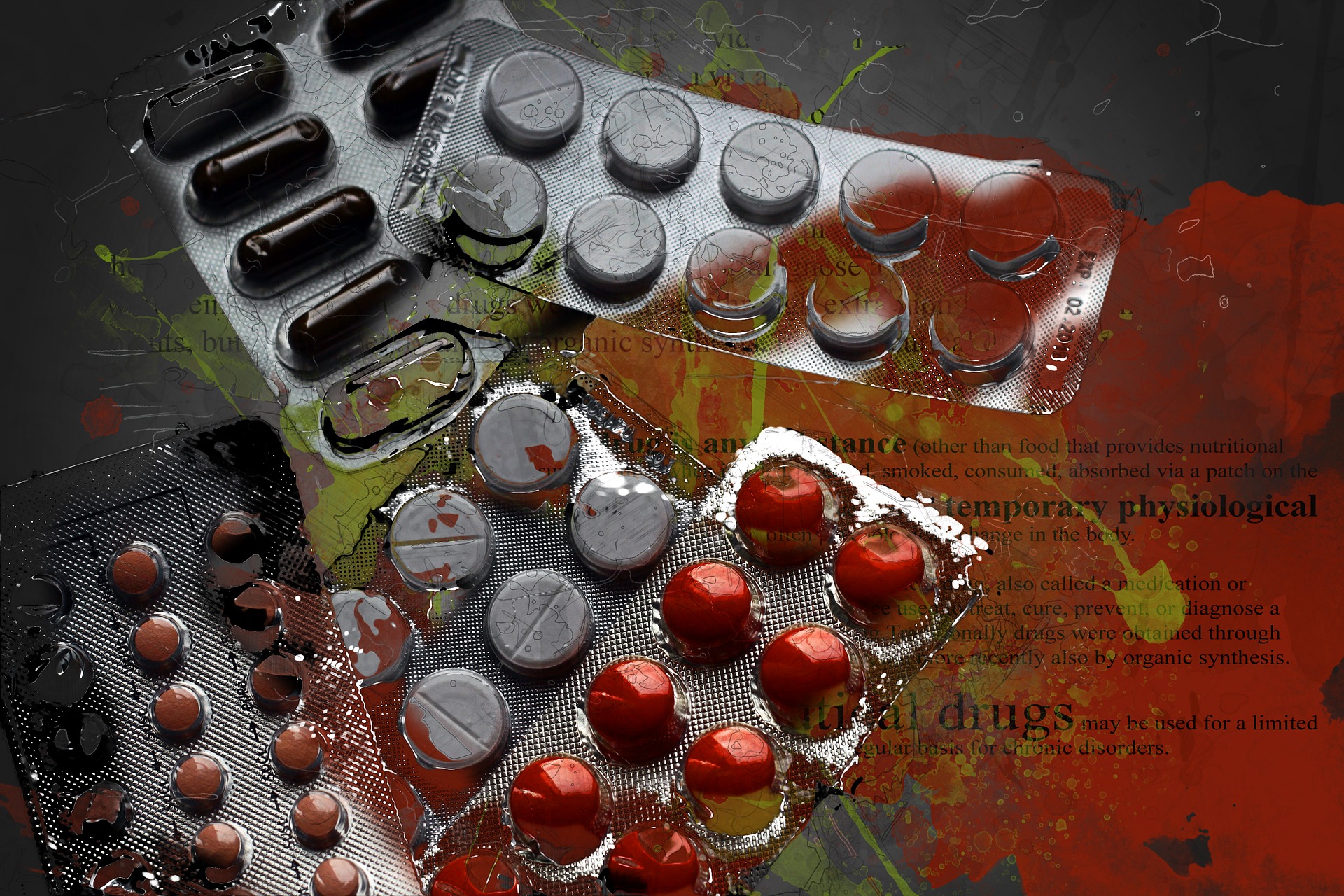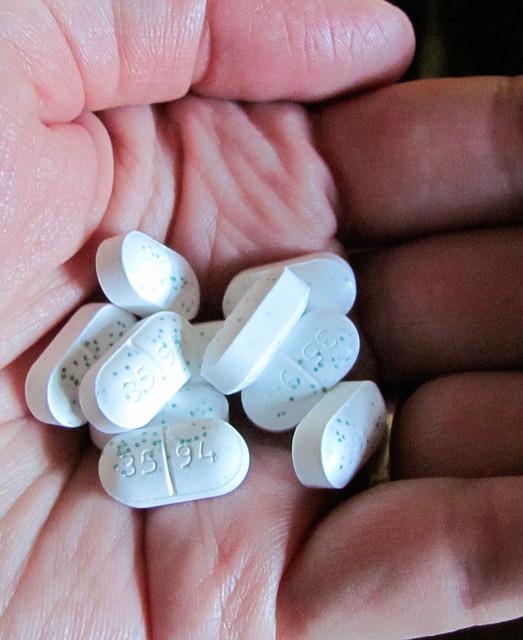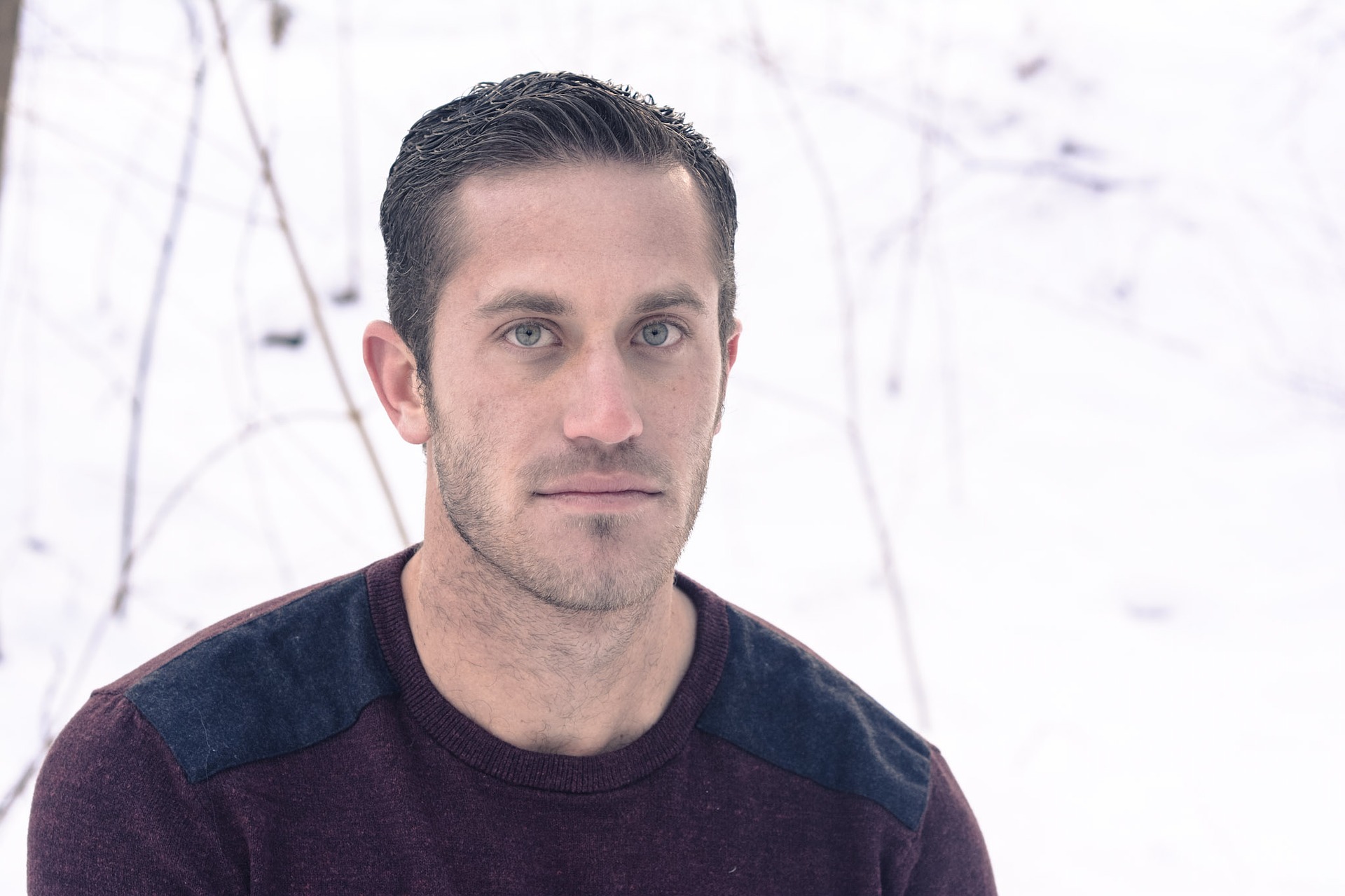Every individual is different when it comes to substance abuse, and someone’s current stage of drug use can often affect how they are likely to act. But an individual who is addicted to opioid drugs is often likely to abuse any narcotic available to them in order to get the high they crave. If you have been struggling with substance abuse, call 800-934-1582(Sponsored) now to receive immediate help and to learn about your treatment options.
The Steady Development of Addiction
Someone who first begins abusing opioids by taking prescription drugs or cough medicine will not be as likely to abuse whatever narcotics are most available to them. These individuals usually feel they are in control of their substance abuse and will likely prefer certain drugs to others.
However, as a person begins to use narcotics more and more, they will start to crave the effects of these drugs and experience withdrawal symptoms when these effects wear off.
Because of these two effects working simultaneously, someone who makes a conscious choice to misuse narcotics will soon not be able to choose to stop. This is when most individuals begin to seek out whichever drug is most available to them.
Prescription Opioid Abuse Leads to Heroin Abuse
Often, those who begin abusing prescription narcotics and become addicted to them will start to seek out heroin as a cheaper, more available alternative. Heroin is much easier to obtain than prescription opioids and usually much less expensive as well. Coupled with the fact that the former drug causes a much faster high because of its methods of abuse, many users turn to the more available substance.
According to the National Institute on Drug Abuse, “Nearly half of young people who inject heroin surveyed in three recent studies reported abusing prescription opioids before starting to use heroin.” The accessibility of the drug is a large part of its attractiveness, but this behavior is also extremely dangerous, leading to many overdose deaths and severe addiction symptoms.
Frequent and Dangerous Opioid Misuse
Those who are addicted to a certain type of drug’s effects will often take any substance in that drug class in order to get the high they seek. Some individuals may also attempt to medicate the side effects caused by their substance of choice or to cope with other issues by abusing other substances. In certain cases, prescription sedative use is common among opioid and stimulant addicts to self-treat insomnia and other issues, and this is extremely dangerous as it can also lead to addiction.
Addiction causes a person to seek out a certain drug without considering the consequences of that behavior or without being able to stop. While many addicts have a certain substance they prefer to use, they will often do anything to minimize their withdrawal symptoms or experience the high they crave.
Substance abuse is extremely dangerous, especially the nonmedical use of prescription opioids. This can quickly lead to addiction and the compulsive use of narcotics. If you are an opioid user who has begun to feel your substance abuse is out of your control, call 800-934-1582(Sponsored) immediately to find safe, effective, and beneficial treatment options near you.
Many rehab centers and treatment options available to narcotic addicts can help patients find jobs as they recover from their opioid abuse. If you would like to find a treatment program that will cater to your needs, call 800-934-1582(Sponsored) now for immediate assistance.
On-site Vocational Help
Treatment is meant to be holistic and all-inclusive to the needs of a particular patient. Someone who requires vocational help can often receive it on-site at a treatment center. Many programs offer vocational counseling where the individual can find out their options as well as what jobs they might be best suited for once they leave rehab. Résumé building classes that teach patients how to write effective résumés and other workshops are also available in certain facilities.
This is often the kind of holistic care one will find at a residential center that helps patients get back on their feet after drug addiction has caused many problems in their lives. It is extremely common for addicts to experience problems with work or to become fired as a result of their addictions and the actions they take because of them. According to the National Institute on Drug Abuse, many people still cannot stop abusing drugs once they do lose their jobs, so both issues––as well as any other associated problems––often need to be addressed together to help the individual make a full and well-rounded recovery.
Off-site Vocational Help
Certain treatment programs for narcotic addiction may not provide as many on-site options to help individuals find jobs, but many of these facilities partner with off-site programs to help patients. According to the National Institute of Justice, methadone maintenance treatment “also involves providing patients with comprehensive rehabilitation services,” including referrals to “community-based agencies” that can assist with employment and other needs. This is often true as well of many outpatient clinics and free or low-cost programs.
However, just because a treatment program does not provide someone with on site does not mean they are unprepared for this necessity. If you discuss your options with your doctor, counselor, or another professional at your treatment facility, you will often receive many types of assistance that can truly make a difference in your search for employment.
Addiction Treatment Can Help Your Employment Situation
As stated by the NIDA, “According to research that tracks individuals in treatment over extended periods, most people who get into and remain in treatment stop using drugs, decrease their criminal activity, and improve their occupational, social, and psychological functioning.” Addiction treatment can improve so many different aspects of your life, as well as help you find a job and improve your financial situation.
Of course, the most important goal of narcotic addiction treatment is to help you stop abusing drugs, but these programs are also meant to improve your quality of life. You can begin your recovery today and start to create a better life for yourself. Call 800-934-1582(Sponsored) to find treatment options and to learn more about how rehab centers can help you find a job in recovery.
All addictions involving narcotics––both illegal and prescription opioid drugs––are treated using the same types of options: medications and behavioral therapy. While which of these options is used depends on the patient and their specific needs, many people wonder which narcotics cause the addiction syndromes that are the hardest to treat. In truth, they are mostly similar in their treatment with a few differences.
Availability of the Drug
According to the National Library of Medicine, “In the United States, the most commonly abused opioids are heroin and methadone.” This is partially because these drugs are so easily available to those who would hope to abuse them. Methadone can often be found diverted to the black market, and heroin is not only easily obtainable but often cheaper than purchasing prescription opioids illegally. Because of the extreme availability of these drugs, it can be hard to treat someone who is addicted to them and help them avoid the potential for relapse. However, a person who is addicted to opioids will often abuse any type of drug that falls under this category.
Intensity of the Drug
Treating heroin addiction is extremely difficult because the drug is very intense in its effects. Those who become addicted to it often do not stop using it and, according to the Center for Substance Abuse Research, even do so after they no longer feel its effects just to avoid the intense withdrawal symptoms. For this reason, it can be very hard to treat and recover from heroin abuse, which is a drug that creates its effects much faster than other opioids and, therefore, causes extremely intense addiction syndromes.
In Truth…
The difficulty of treating a narcotic addiction often comes down more to the patient, though, than the drug itself. Yes, heroin creates an intensive addiction syndrome in those who abuse it, but a person who becomes strongly addicted to fentanyl, oxycodone, or another narcotic may struggle just as much to quit it.
Physical and psychological dependence and their severity from patient to patient can also make certain addictions harder to treat than others. A person who is extremely dependent on a narcotic will have a hard time quitting because of the severe withdrawal symptoms, and treatment will likely be difficult. Therefore, there is no one answer to this question when considering all the variables different individuals can experience based on their use of a certain narcotic or based on their specific addiction syndrome.
Seek Help Now
Those who start out abusing prescription opioids can experience just as difficult a time going through treatment and making a change as those who abuse heroin. This is why individuals who begin misusing narcotics should seek treatment as soon as possible: abuse can always worsen and is more likely to lead to addiction the longer an individual continues it.
If you have been abusing narcotics and believe you are experiencing symptoms of an addiction, call 800-934-1582(Sponsored) today. We can help you find a treatment program that will cater to your needs as well as answer any questions you have about narcotic abuse, addiction, and rehab.
Tramadol, like other opioids, can cause addiction when abused in high doses over several weeks or months. When someone becomes addicted to tramadol, they will require professional treatment in order to end their misuse of the drug and make a change in their life for the better.
General Tramadol Addiction Treatment
In general, tramadol addiction is treated the same way that addiction syndromes involving oxycodone, hydrocodone, heroin, methadone, and other narcotics are. Tramadol is used to relieve moderate to severe pain, and the options that are beneficial to other narcotic addicts can be beneficial to those who have misused tramadol as well. Treatment options include:
Medications
- Naltrexone– an opioid antagonist that triggers withdrawal symptoms in anyone dependent on opioids
- Methadone– an opioid agonist that minimizes withdrawal symptoms, reduces cravings, and stabilizes the user
- Buprenorphine– a partial opioid agonist that works much in the same way as methadone but is also paired with naloxone to minimize the chance of abuse
Behavioral therapies
- Cognitive-behavioral therapy– a program that helps patients think differently about their substance abuse and anticipate future problems
- Contingency management– a program that uses vouchers or prize incentives to help patients stay sober
- Group therapy– a program that allows patients to help one another confront problematic beliefs and create a better behavioral pattern
Usually, a person is able to rely on these options, which according to the National Institute on Drug Abuse, can “effectively treat” narcotic addiction. However, tramadol can create certain issues when abused that differ from other narcotics and may require another type of treatment.
Tramadol-Induced Psychosis and Its Treatment
As stated by a study in the journal of Addiction Health, tramadol can cause atypical symptoms when abused, one of which is psychosis. This can often occur during or after withdrawal and requires a specific treatment modality. In the study cited above, the patient who experienced this issue “was treated with analgesic, sedative, and hypnotic drugs.” Antipsychotics were not prescribed.
While the individual needed analgesics still to minimize their withdrawal symptoms and cravings for narcotics, they also required other medications to treat their psychosis. Because these psychotic symptoms were only temporary, though, they were not prescribed antipsychotics and the symptoms soon subsided.
In addition, the individual will need to be treated for any lingering effects associated with their temporary psychosis. While behavioral therapy is usually always a part of opioid addiction rehab, the psychosis itself should be acknowledged in therapy and any after-effects associated with it should be treated. Otherwise, the individual may be more likely to relapse.
Seek Tramadol Addiction Treatment Now
Tramadol addiction is dangerous just like other narcotic addictions. Because of the possibility of one experiencing atypical symptoms like psychosis, though, professional treatment is absolutely necessary, and the individual should be tested and treated for any additional issues.
If you are looking for tramadol addiction rehab or just want to learn more about the drug and the effects it can cause, call 800-934-1582(Sponsored) . We can help you find a rehab center that fits your needs. Call today.
If you are having a problem with narcotics and need to seek treatment you are not alone. According to the National Institute on Drug Abuse, around 23 million people over the age of 12 need some type of drug treatment. One of these types is inpatient narcotics treatment. Inpatient treatment is a residential treatment program which means you stay at the facility while receiving a variety of therapies, counseling, and medical services. Since you will be staying at the facility, away from home, there are a few things that you need to take care of before you go.
Tell your Family and Loved Ones that you Will Be Away
You need to tell those that love and depend on you that you’re are going away. Although it is good to tell them where you are going it is not strictly necessary. Some people choose to engage in drug addiction treatment without telling anyone but remember family support can be very helpful for in drug addiction treatment.
You should at least let one person know where you are going in case there is an emergency. It should be someone you trust to keep your confidence.
Notify your Job of your Absence
Although you do not need to tell your job where you are going, you do need to let them know you will be absent. Some people take their vacation or sick leave to seek drug treatment while others just tell their employer where they are going.
Whether you tell your job about your drug treatment or not is completely up to you. Some employers are okay with it while others take a negative view of drug addiction. You are the only one that knows how they will react to your narcotics addiction.
Make Arrangements for Pets and your Home
One thing that is absolutely necessary is making arrangements for your pets and your home. Since you will be away at least a few weeks, someone should come by and check on things while you are away. You can ask family members, friends, or a pet sitting service to help with pets if you need it.
The last thing you want to be worried about when you are going through addiction treatment is whether or not your house is safe. The simple knowledge that your pets and home are being taken care of can help dispel some of that worry.
Make Travel Arrangements if your Treatment Center is Far from Home
Some people choose and addiction center far from home. If yours is you will need to make travel arrangements ahead of time. Make sure that you have an open ended return trip just in case your treatment takes longer than you expect. Depending on where the treatment is located you can have a friend drive you or take another form of transport. Many treatment services offer pick up from airports and bus stations for their out of town patients.
For more information on finding an inpatient treatment center for your narcotics addiction or for helpful advice about these centers call 800-934-1582(Sponsored) . We can help you with all of your questions about narcotics addiction and narcotics addiction treatment.
According to the National Institute on Drug Abuse, there are many type of treatment available for addiction. These treatments usually involve counseling, psychotherapy, and medications. This has been the standard of treatment for many years. Although the current treatments for drug addiction work most of the time, there are incidences where they do not help.
Fortunately, there are a few new ideas when it comes to addiction and recovery. These ideas take the original ideas and principles of treatment and build on them to improve the overall chances of recovery. One of these new ideas is social recovery.
What is Social Recovery?
Social recovery is the idea that it is not only the addiction that should be treated but the person and community as well. It states that if the person is happy and healthy in a good environment, the addiction will stop on its own.
This idea started when scientists realized that the rats that they were studying for addiction on, were fundamentally unhappy. They were placed in something called a skinner box. This box contained a rat with barely enough room to move and a choice of drugged or undrugged water. They almost always chose the drugged water. It took scientists a while to realize that the rats might be drinking the drugged water out of boredom, unhappiness, or lack of something better to do.
When the rats were placed in a happy environment, the results changed. Most of the rats rarely drank the drugged water once they were put with other rats and had other things to do. This study is known as the Rat Park experiment.
How is this Theory Put Into Practice?
The Rat Park experiment began what is now known as social recovery. This is the idea people who are happy and content in their social, environmental, and physical interactions will not become addicts.
When someone is addicted to a drug, people who believe in social recovery attempt to correct all of the issues that a person has and heal the whole person rather than just the addiction. They use education, community intervention, and medication to heal the addiction. This allows the addict to recover their life rather than just recover from the addiction.
Social recovery works when a person is in a position to become financially, socially, and mentally stable. If something prevents that from happening such as an underlying untreated mental illness, social recovery will not work.
This is why those that believe in social recovery sponsor education programs, job training, and other programs that promote social change in the community rather than just working with addiction recovery. If the community itself does not change social recovery might not work.
Finding Help and Social Recovery Treatment
If you want to find a clinic that offers social recovery all you have to do is call us at 800-934-1582(Sponsored) . We can help you find the program you need and the treatment that you want. You do not have to continue to let the addiction rule your life.
Since the antidrug campaigns of the 1970s and 1980s, we all know that drugs are dangerous but some drugs are more dangerous than others. According to the National Institute on Drug Abuse, there are a variety of drugs that are extremely dangerous to the mind and body. These drugs range from household chemicals to prescription and hardcore illegal drugs. Some of these drugs are more dangerous than you think.
1. Benzodiazepines
Although these drugs are usually prescription, they are highly addictive and devastating to try and stop using. They are one of the few drugs that withdrawal will kill you.
2. Methamphetamine
As hardcore drugs go, this is one of the most dangerous. It causes the metabolism to become so jacked up that your body literally begins to eat itself.
3. Synthetic Psychedelics
Synthetic psychedelics are often billed as safe alternatives to illegal psychedelics. They are not safe, actually they are more dangerous and deadly than the majority of illegal psychedelics.
4. Heroin
Everyone knows that heroin is dangerous but not many people realize that if using it doesn’t kill you the secondary infections such as HIV will.
5. Prescription Painkillers
Another drug that doctors prescribe with potential dangers are painkillers. The majority of these are highly addictive and are essentially a gateway drug to heroin use when a doctor stops them suddenly.
6. Alcohol
Alcohol is dangerous because most people think that it is safe because it is legal and because you are likely to do dangerous things while you are on it. Alcohol accounts for many of the drug related deaths around the world.
7. Steroids
Even though people have warned against steroid use for a long time, people still do not understand the short and long term damage that they do. They can be devastating on the bodies systems.
8. Over the Counter Cough and Cold Medicines
Cough and cold medicines are still medicines regardless of the fact that they are sold over the counter. Taking too much of it is still dangerous. Many cough and cold medicines are also very addictive.
9. Synthetic Cathinones
Synthetic cathinones or synthetic marijuana is a relatively new drug, since the legalization of marijuana. Unfortunately, it does not act like marijuana in the system. When you use them you risk psychosis and insanity.
10. Ketamine
Ketamine although not widely available is extremely hard on the body. It causes urinary cystitis which is both extremely painful and damaging.
11. Inhalants
Inhalants such as aerosols and sprays can burn the lungs and scar respiratory surfaces. These inhalants can kill you if you inhale the wrong substance.
12. Crack Cocaine
Crack cocaine produces an effect called chasing the high. You use more and more of the drug in order to find the high that you got the first time you use it.
13. Prescription Stimulants
ADHD medication and prescription stimulants can cause psychosis when they are not taken properly. Even though these are prescriptions given to children, they are still dangerous.
14. Legal Narcotics
Legal narcotics or designer drugs are drugs that are technically legal only because the formula hasn’t been made illegal yet. Many of these drugs produce a variety of effects including psychosis and death.
15. Tobacco
Tobacco is one of the most dangerous addictive drugs because it seems so innocuous and is an extremely slow killer.
For more information on treatment for an addiction to these drugs call us at 800-934-1582(Sponsored) .
According to the National Institute on Drug Abuse, people have many questions when it comes to drug addiction and the more they know, the more they are able to protect themselves against the dangers of drug abuse.
1. Do I Need Addiction Treatment?
Only you can tell whether you need drug addiction treatment or not. You are the best person to decide but if you are asking this question chances are you already recognize there is a problem.
2. Is Addiction a Disease or a Moral Failing?
Drug addiction is a disease not a moral failing. People who are addicted have a problem with their brain chemistry rather than a problem with their morals or will power.
3. Are All Narcotics Illegal?
No, many narcotics are legal. Most legal narcotics are available by prescription through legitimate doctors.
4. Why Does Someone Addicted to Drugs Keep Using Drugs?
When someone is addicted to drugs, their bodies start to change to accommodate the drugs. Once this change starts to happen, the individual almost needs the drugs just to function near normal.
5. How Effective is Addiction Treatment for a Narcotics Addiction?
Addiction treatment is extremely effective when you follow the principles of addiction treatment. Many people who are treated for a narcotics addiction find that the treatment works as long as they work at it. No treatment works without effort on the part of the addict. If the right addiction treatment is used then there is a really good chance that it will work. If it does not all you have to do is find the right type of treatment for you.
6. Can Families Participate in Drug Addiction Treatment?
Yes families can participate in drug addiction treatment. As a matter of fact it is very helpful to the person being treated when their family participates. It adds to the support structure that the addiction treatment provides.
7. What is the Difference between being Dependent on a Narcotic and being Addicted?
When you need a drug for medical purposes you are said to be dependent on the drug. When you begin to take more than the recommended amount of the drug, take it recreationally, or when it starts interfering with your life you are addicted.
8. What Part Do Alternative Treatments Play in Addiction Treatment?
Alternative treatments can help to support overall addiction treatment. Most people use alternative treatments to supplement their standard addiction treatment. Many alternative methods have been used for thousands of years.
9. What helps Someone Stay in Narcotic Addiction Treatment?
The things that can help someone stick with their narcotic addiction treatment depends on who they are. Everyone finds that they have their own reasons for being in treatment and for stopping drugs. Each individual has to find their own way of motivating themselves.
10. Where can I Find Narcotics Addiction Treatment?
You can find narcotics addiction treatment by simply calling us at 800-934-1582(Sponsored) . We can help you seek out the treatment you need to stop your narcotics addiction.
Affecting over 2.1 million people and growing in the United States, the NIDA describes prescription drug abuse one of the most common forms of addiction. Due to its prevalence, it can be difficult for family members, friends, and the addict themselves to recognize the symptoms of prescription drug abuse.
Understanding what some of the most common symptoms of prescription drug abuse are can help those who are addicted and their families to seek help.
Seeking or Possessing Multiple Prescriptions From Multiple Doctors
Prescription drugs, unlike most addictive substances, are not only legal, but heavily controlled by the federal government. A person can usually only obtain a prescription medicine through a physician. Most of the time, people who develop an addiction to prescription drugs start out with a legitimate reason for the prescription being written in the first place.
As they become addicted, they go through the prescription faster than they want and will often resort to questionable methods in order to obtain more. Occasionally, they may “lose” or misplace prescription orders and refills. Often, the person will go to multiple doctors and present the same symptoms in order to get the diagnosis necessary for the prescription to be written.
Poor Judgement
Addiction is a defined by the NIDA as a chronic disease where the person afflicted has little to no control over their actions. The substance a person is addicted to is the one that controls them, and their main focus is the drug itself.
All decision making will revolve around the drug, either taking it, getting it, and how to continue using it without being stopped. Many people who abuse prescription drugs will do things that can be harmful to themselves or others in order to fuel the addiction.
Often, they are not aware of the severity of their actions and the consequences that those actions can have.
Appearing Sedated or “Revved Up”
Most drugs, prescription or otherwise, come with a long list of side effects and complications. Often, the effects are the main purpose of the drug: calming if it is a sedative, energizing if it’s a stimulant, or numbing if it’s an opioid.
A person’s behavior, when they have massive amounts of the drug in their system, is usually an amplified version of the drug’s intended effects. Behavior changes and energy levels can vary based on what drug it is and how much of it that the person took.
This can actually be one of the easier ones to spot, as this symptom is usually an intensified outcome of the drug. However, behavior and energy changes can also be unintended side effects and may be listed in the written material that often accompanies prescriptions, as well as on the manufacturer’s website.
Going Against Instructions
In order to for a prescription drug to have the highest effect on a person who is abusing it, they often need to go against the instructions for the medication. This can mean taking higher dosages than recommended or more frequently than instructed.
Usually, this is because they want to have the effects continue with little to no crash time in between. The person will also develop a higher tolerance, meaning that they will need to increase the dosage the longer the addiction lasts.
There are many consequences of going against a prescriptions instructions, with the most common being a higher risk of overdosing, which can be fatal.
If you or a loved one has an addiction, consider calling us at 800-934-1582(Sponsored) for more information. You will be able to speak with one of our caring specialists to find out what your options are for treatment and recovery.
Narcotic abuse consistently leads to dangerous side effects in those who misuse these substances, and it is absolutely necessary to seek help in this instance. According to the National Institute on Drug Abuse, “When abused, even a single large dose can cause severe respiratory depression and death.” This is only one of the reasons why it is important to avoid narcotic abuse, but if you have already begun to take opioid drugs in a way you were not prescribed to, you should absolutely seek treatment immediately.
Why Should I Seek Help?
There are many reasons why a person who has been misusing narcotics regularly should seek treatment.
- Opioid drug abuse can lead to deadly overdose due to respiratory depression.
- Abusing narcotics can lead to addiction as well as the many other consequences caused by this issue.
- Dependence and tolerance, two conditions that will only worsen with continued misuse, can both lead to more serious side effects.
- Withdrawal symptoms can occur and are often severe and painful, leading many individuals to relapse.
- Quitting narcotic abuse becomes harder the longer an individual does it.
- Seeking professional treatment makes a person more likely to be able to avoid relapse and other issues associated with recovery from drug abuse.
Once you seek treatment for opioid use, you are going down a much safer and more beneficial path that can help lead you to the kind of life you want. However, continuing to misuse these drugs––or even trying to quit on one’s own without treatment––is much less likely to create the kind of outcome one desires.
Do I Really Need Help Quitting?
As stated by the NIDA, “Several options are available for effectively treating prescription opioid addiction.” However, many individuals wonder if their current state requires them to need treatment. Ask yourself the questions below to find out if you need help quitting narcotics.
- Do you consistently abuse narcotics, whether you first began taking them as a medication or not?
- Do you feel that you cannot get through the day without taking opioids in high doses?
- Have you experienced a high tolerance for these drugs or severe withdrawal symptoms?
- Have you sacrificed things in your life that used to be important to you in order to abuse narcotics?
- Have you experienced severe consequences in different areas of your life (losing a job, ending a relationship, financial issues, etc.) as a result of your opioid use?
- In spite of these issues, do you still feel you are unable to stop abusing these drugs?
If you answered yes to these questions, it is important that you seek help right away. These are strong signs of addiction, and you will absolutely require treatment in order to stop abusing narcotics and to make a change in your life. However, even if you do not feel you are currently addicted to these drugs, you can seek treatment now to make a necessary change.
If you have been abusing narcotics, it is usually a good choice to seek help in order to stop. Opioids are dangerous drugs that can cause serious issues when misused, and seeking help is a good way to begin your recovery, now matter how serious your abuse is currently. Call 800-934-1582(Sponsored) today to find a treatment center that is right for you.

